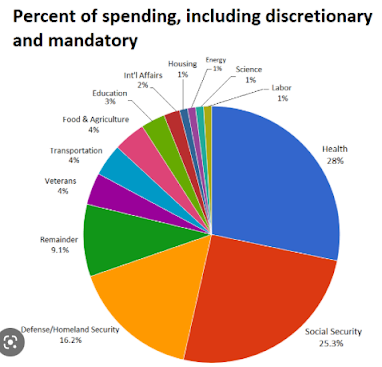COVID-19 is still with us, though its toll has subsided to a level (about 150/day in the USA) that no longer seems to trouble most people. There are vaccines available and most of the deaths are associated with co-morbidities of age and obesity. COVID will take its place in the pantheon of diseases and kill tens of thousands of Americans each year, just as influenza and other diseases do. It has gone from pandemic to endemic.
The days of social distance and mask mandates are pretty much gone, but the debates about measures taken during the pandemic have never been resolved and will no doubt play a strong role in the next pandemic. Are shutdowns necessary? Do masks and mask mandates work? Should schools and churches be closed? Should vaccines be mandated? These are the questions that will reverberate as soon as the next scary disease appears on the horizon.
The astounding success of the race to create a vaccine and its successful rollout should make all of us stand up and applaud. But sadly, many of our citizens have already forgotten the horrors of the first few months of the COVID plague. Italy, Spain, China, New York City, London – the juggernaut of death and disease that ravaged those areas was incredibly frightening, but somehow as the disease’s impact waned over the last 3 years people have come to strange conclusions about what actually occurred and what measures are appropriate. Sometimes I even hear people say that we should never have gone into shutdown. I shake my head in amazement.
There will always be a tension between public health needs, economic needs and individual freedom. Clearly it is desirable to minimize the impact of health directives and mandates on the economy and personal liberty. But when a true pandemic occurs, or is looming, the government must do whatever is necessary to limit mortality and contagion.
The most critical goal of public health measures during a pandemic must be to safeguard our healthcare system and prevent it from being overwhelmed. If healthcare workers, facilities and equipment cannot keep up with the rate of infection and the treatment of the sick, then the death rate will spiral out of control and the healthcare workers will also get sick and die or become exhausted. This occurred in the initial phase of the COVID pandemic in New York City and many other areas. Preventing this scenario must be the first priority of the government.
It is possible that less densely populated areas may not require the extreme levels of shutdown or other measures that major metropolitan areas require, but it is tricky to implement different levels of public health measures effectively.
Mask-wearing and vaccines became highly politicized in the USA, much more so than in other countries. At a basic level it is pure idiocy to argue that vaccines and masks are unnecessary or should be voluntary. In the face of a deadly and highly contagious disease, it makes no sense at all to argue that personal liberty should be given priority over public health.
We have required vaccination of children in this country for years and the results in terms of childhood mortality and disease are clear and incontrovertible. The data on the COVID vaccines are similarly convincing. Granted, there was some understandable concern about the rapidity of the vaccine development and the novel technology, but the trial results and ongoing lack of significant side effects or dangerous reactions were quite convincing.
It is more difficult to accurately analyze the effectiveness of masks, but masks have been required in hospital operating rooms and infectious disease wards for the last century and have contributed to a much lower infection rate in those environments.
There is a recent study that questions the effectiveness of mask mandates, but that study acknowledged that its confidence level was low and that such studies are very dependent on how compliant people are in wearing masks. Direct scientific studies of mask effectiveness have confirmed that they are quite effective when utilized correctly. And wearing a mask in public spaces is hardly a big imposition on people. The level of hysteria over mask mandates, like so many other political litmus tests, is really quite absurd.
When the next pandemic arrives, as it inevitably will, there is good reason to fear that the true lessons of COVID-19 will have faded and that there may be passionate opposition to taking strong measures to contain it. Let us pray that the people in power at that time will act on scientific and medical guidance and avoid political gamesmanship. Our very lives will depend on it.



